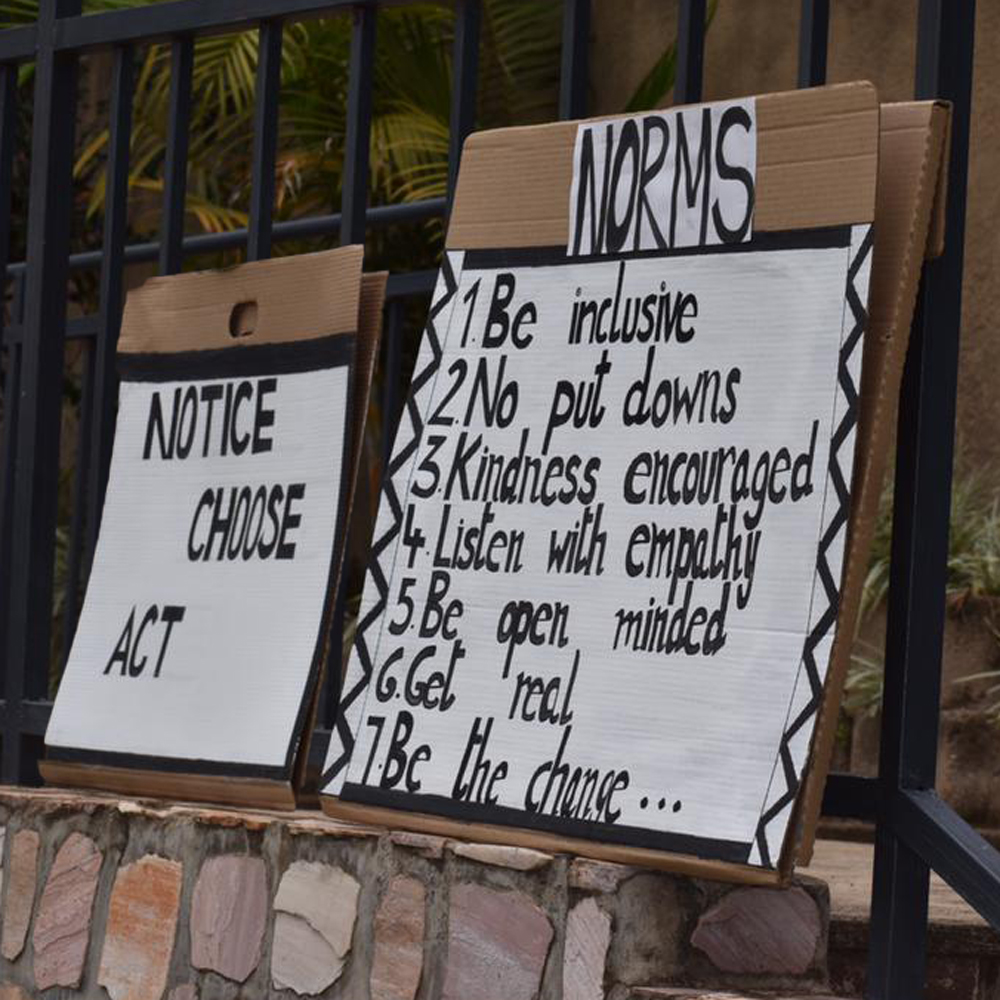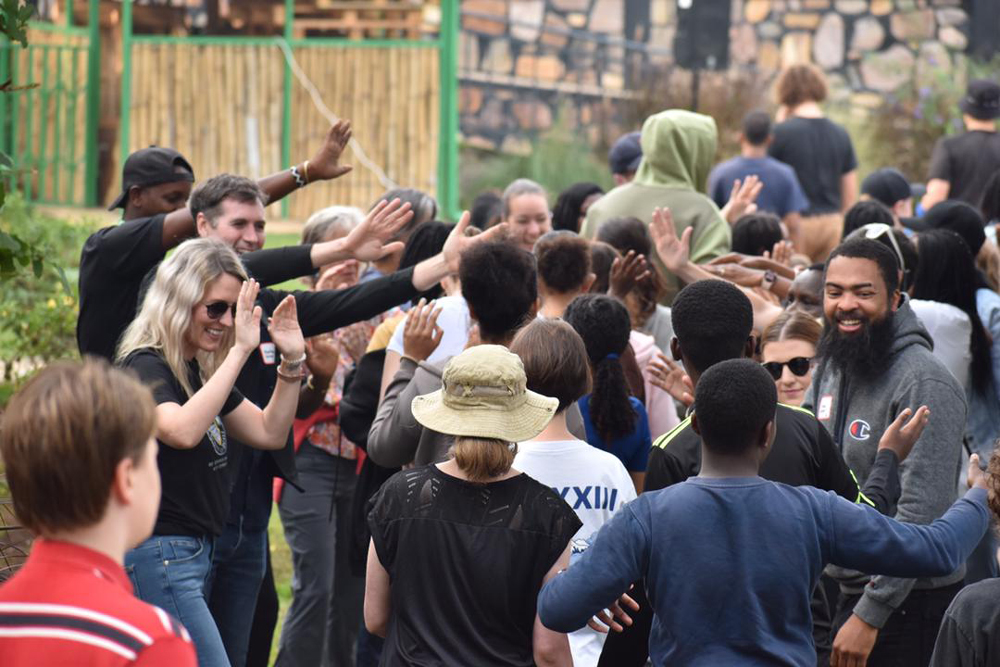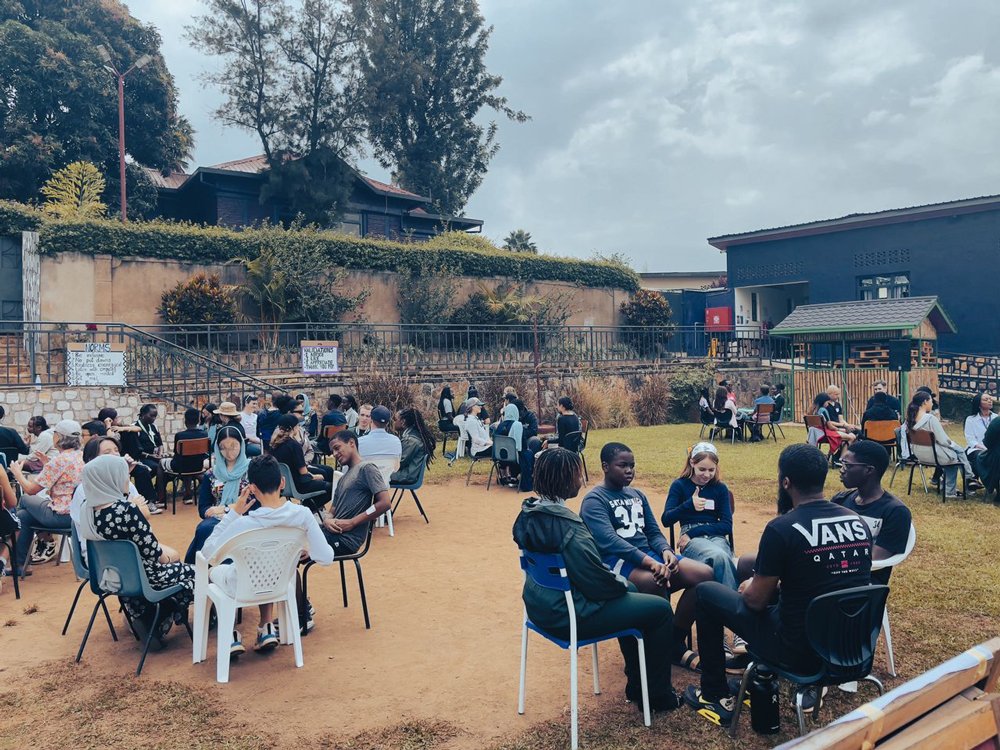
It is a clear, temperate morning. The sounds of a school day begin to fill the air with laughing as students walk to classes. But this morning is different from the rest. "Ms. Rose, is there a place to put our bags? Mr. Corby, will we play games?" Questions begin as secondary students check-in for the International School of Kigali's (ISK) first-ever Community Social Emotional Learning Workshop. Students from other schools arrive and immediately position themselves into groups, sectioning themselves off as teenagers do. You can tell they are both excited and shy, reticent to speak to one another. They are not entirely sure what this day will look like. At the end of the day, upon completing the workshop, these same students will be high-fiving, hugging, and exchanging information with new friends made at the workshop.
(Photo source: International School of Kigali)
Now more than ever, our children need help processing emotions, building relationships, and connecting with others in meaningful exchanges. In conjunction with the implications on mental health caused by the COVID-19 pandemic, our teens are faced with messages daily about climate change and must navigate the increasingly complex world of social media. In schools, workshops and curricula involving social-emotional learning (SEL) often get pushed to the side in favor of academic programming. This is simply not the case at the International School of Kigali.

On January 27, 2023, students from ISK, Green Hills Academy, and the School of Leadership Academy, Afghanistan joined together for a day of social-emotional learning. Students dug deep, connected, played games, danced, hugged, cried, laughed, and smiled. A soundtrack of upbeat music accompanied these activities to help bring up the energy. The activities allowed students and staff from different cliques, grades, and schools to interact. As one participant mentioned, “I learned new things about other people. I made new friends, and I really enjoyed learning about others." As the morning progressed, the students were slowly encouraged to step outside their comfort zones and share hopes and dreams with those they didn't know. Again and again, participants were given the opportunity to connect with people outside their social circles and schools.
Further into the workshop, participants were introduced to the idea that humans are much like icebergs. In 1976, anthropologist Edward T. Hall posited that culture is similar to icebergs. Icebergs have only a small visible portion while the majority remains below the water line. In fact, 90 percent of an actual iceberg's area can remain hidden. Much like icebergs, 90 percent of what makes us human lies in the areas beneath the surface. These are most often things unseen to others: beliefs, feelings, challenges, core values, and attitudes. As one student reflected after the workshop, "Everyone has something below their waterline. We don't know everything going on in someone's life or how our words or actions may affect somebody."

The Cross the Line activity was the culminating event that asked students to explore what lies beneath the iceberg for themselves and their peers. As educators, we have participated in this activity in countless schools but there was something special about what happened at this particular Cross the Line at ISK; over 115 adult and student participants from over 40 nationalities participated. The activity was a powerful exercise in empathy because it was experienced in silence. The workshop created a safe space for all to explore the various identities that they carry each day. As a different student commented, “It was honestly one of the best things I have ever got to be a part of in my entire life. I got to talk to and get to know new faces of both peers and teachers, and got to know more things about myself and my friends that I could have never guessed they were going through.”
In an article for The Mahatma Gandhi Institute of Education for Peace and Sustainable Development, Rena Deitz discusses the idea that schools around the globe need to decolonize SEL and truly create meaningful change within their unique contexts and communities. In order to create real change, children must be given an environment that allows them to forget the rules, and a chance to turn the paradigm on its head so as to enable them to design their SEL program.
During the final part of the workshop, students had the opportunity to share their experiences with the group. They chose to apologize to others, expressed gratitude for loved ones, and talked about possibilities for our community. In a post-workshop survey, over 97 percent of participants agreed they learned something new about others in the community. Learning more about others is often transformative and, in this case, sparked the creation of a student-led club called Be the Change, after the Mahatma Gandhi quote "Be the change you wish to see in the world." Students planned and implemented a Be the Change week and are in the process of piloting a peer-mentoring program at ISK. The change is evident, and ongoing.
Reference
Deitz, Rena. “The Need to Decolonize Social Emotional Learning.” UNESCO MGIEP, mgiep.unesco.org/article/the-need-to-decolonize-social-emotional-learning. Accessed 20 Feb. 2023.
--------------------------------------------------------------
Rose Marie Dzugan is an international school leader and educator passionate about preparing students for the complexities of the 21st century. She works as the student services coordinator at The International School of Kigali.
Christopher Corby is inspired to help young people connect and empathize with themselves and others. He has organized, programmed, and facilitated SEL-focused initiatives in the United States, Canada, South Korea, Egypt, and Rwanda. He works as a K through 12 school counselor at The International School of Kigali.
Email: [email protected]